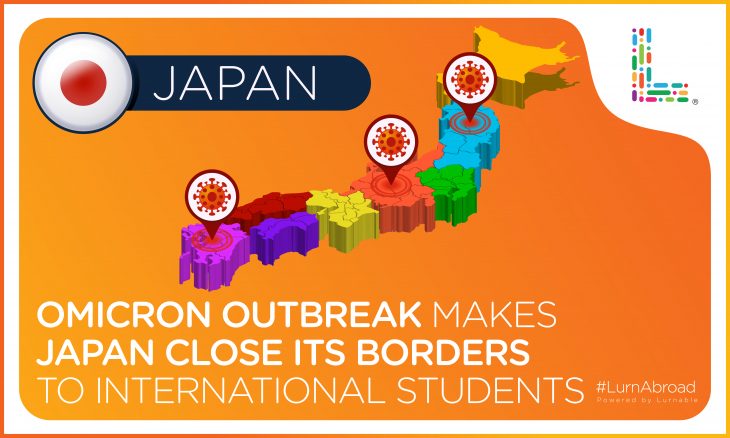Life hasn’t been easy for international students since the pandemic first hit the world. Some countries have been more liberal about reopening borders to study abroad aspirants. But others have shut themselves regardless of the losses sustained by the economy. Japan has taken the second route, making the journey more challenging for international students planning to pursue studies here.
Good news came for the students planning to study here, with the recent announcement regarding easing their travel restrictions for foreign nationals travelling for business and study. But the emergence of the new Omicron strain has disrupted the plans again. The country has imposed fresh curbs, dampening the travel and study abroad aspirations of students from around the world.
The strain that was first discovered in southern Africa has brought fresh concerns for countries as they battle the pandemic. Just when things seemed to be under control, this ‘variant of concern’ brings a new set of challenges. Several countries have already taken measures to implement restrictions on international travel. The bigger worry is that the new strain has already entered several European countries, Israel, Australia, Canada, and Hong Kong.
Israel was quick to act as it sealed its borders right after cases were confirmed. Other countries are reacting rapidly in distress by imposing strict curbs on flyers from the South African region. Japan followed suit, announcing a ban on the entry of foreign nationals starting November 30. Business travellers, international students, and interns from other countries will not be allowed to fly to the country now.
The country initially restricted entry only for travellers from the red list countries including Botswana, Eswatini, South Africa, Namibia, Lesotho, Malawi, Mozambique, Zambia, and Zimbabwe. But broader restrictions came after the variant was declared to be at the second-highest warning level in the country’s three-tier variant alert by Japan’s National Institute of Infectious Diseases.
While the restrictions will be in place, Japan will implement the plan to administer booster shots to the elderly and health workers in the coming month. As of now, 76% of the Japanese population is fully vaccinated, and the numbers of COVID-19 cases are consistently low.
But the news of fresh travel curbs is not going well with international students as they do not have clear timelines or rules regarding their return. They are already sharing concerns and frustrations on social media platforms. Most of them are not happy with the state o online learning in the country. The challenges include poor quality of online learning, different time zones, and an absence of human connections.
Right now, international students have no option but to wait and watch and hope that the Omicron variant will not derail their study abroad plans yet again.

If you are considering studying abroad why don’t you discuss your prospects and opportunities with experts at Lurnable’s dedicated study abroad counselling division LurnPathways?





